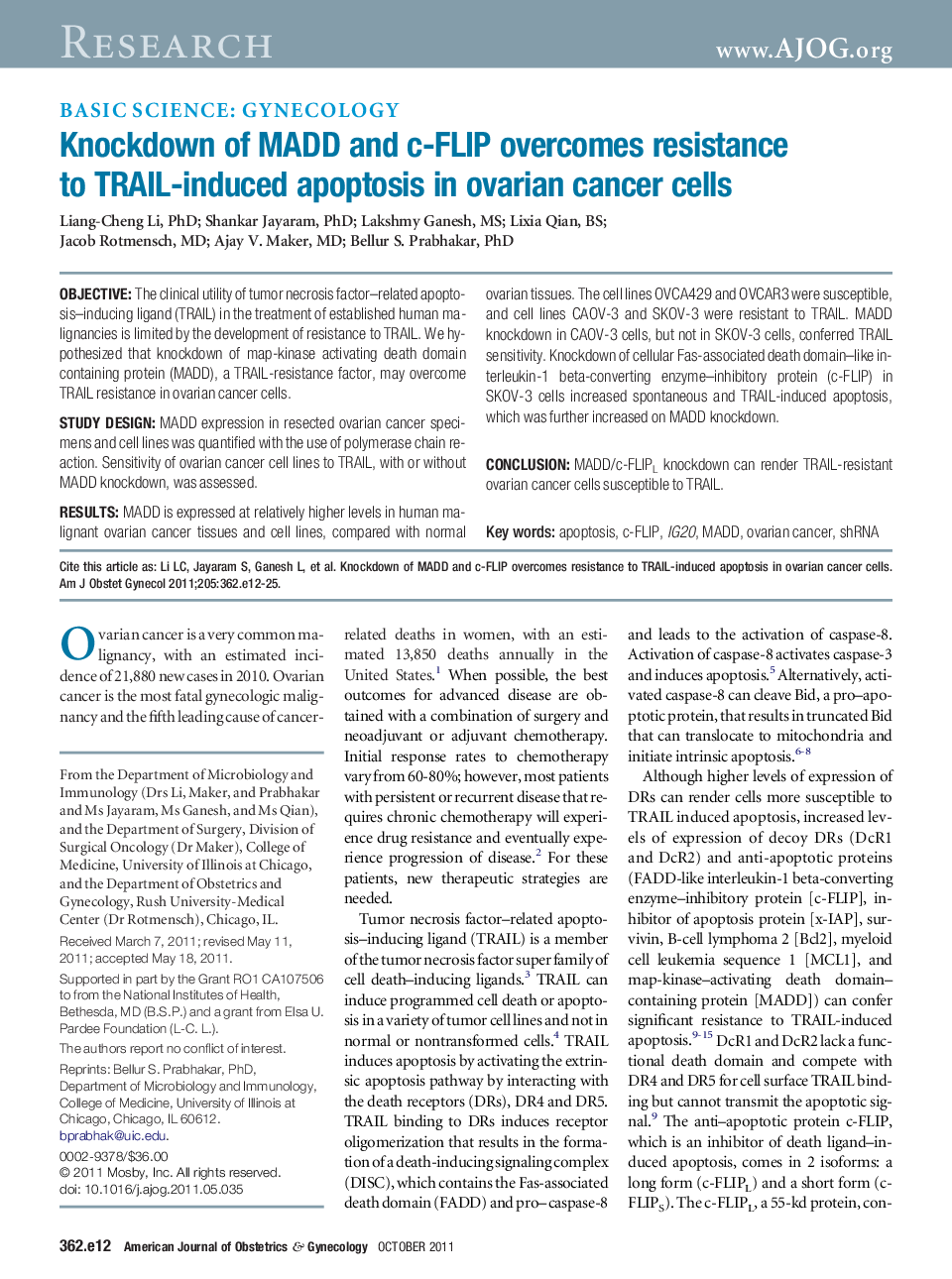| Article ID | Journal | Published Year | Pages | File Type |
|---|---|---|---|---|
| 6147338 | American Journal of Obstetrics and Gynecology | 2011 | 14 Pages |
ObjectiveThe clinical utility of tumor necrosis factor-related apoptosis-inducing ligand (TRAIL) in the treatment of established human malignancies is limited by the development of resistance to TRAIL. We hypothesized that knockdown of map-kinase activating death domain containing protein (MADD), a TRAIL-resistance factor, may overcome TRAIL resistance in ovarian cancer cells.Study DesignMADD expression in resected ovarian cancer specimens and cell lines was quantified with the use of polymerase chain reaction. Sensitivity of ovarian cancer cell lines to TRAIL, with or without MADD knockdown, was assessed.ResultsMADD is expressed at relatively higher levels in human malignant ovarian cancer tissues and cell lines, compared with normal ovarian tissues. The cell lines OVCA429 and OVCAR3 were susceptible, and cell lines CAOV-3 and SKOV-3 were resistant to TRAIL. MADD knockdown in CAOV-3 cells, but not in SKOV-3 cells, conferred TRAIL sensitivity. Knockdown of cellular Fas-associated death domain-like interleukin-1 beta-converting enzyme-inhibitory protein (c-FLIP) in SKOV-3 cells increased spontaneous and TRAIL-induced apoptosis, which was further increased on MADD knockdown.ConclusionMADD/c-FLIPL knockdown can render TRAIL-resistant ovarian cancer cells susceptible to TRAIL.
